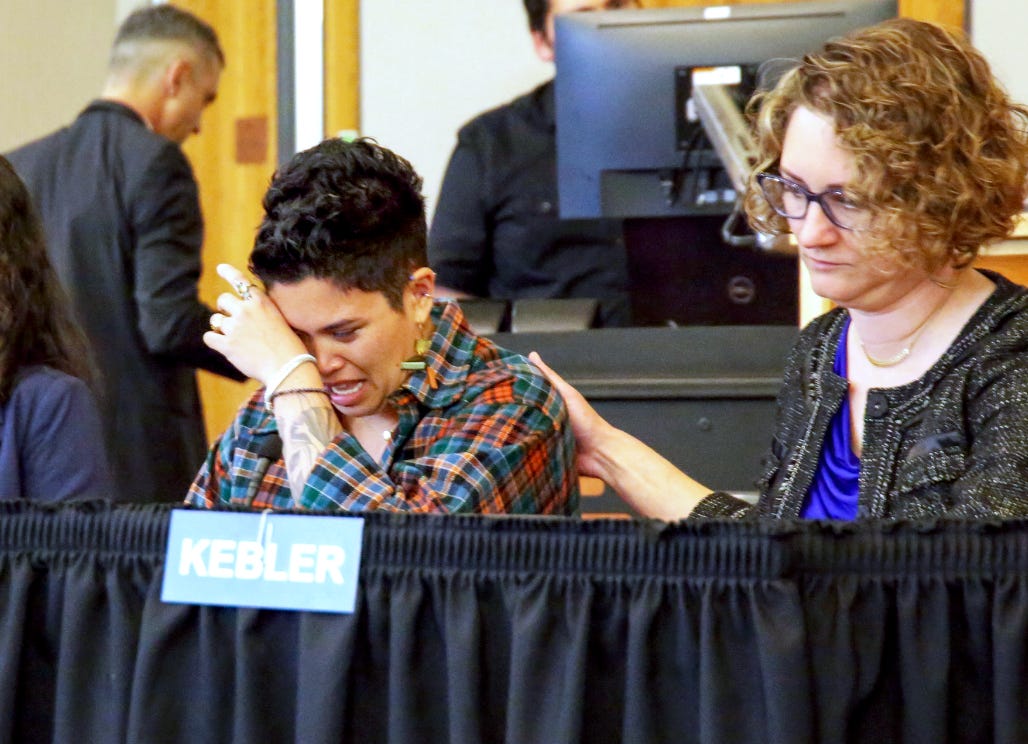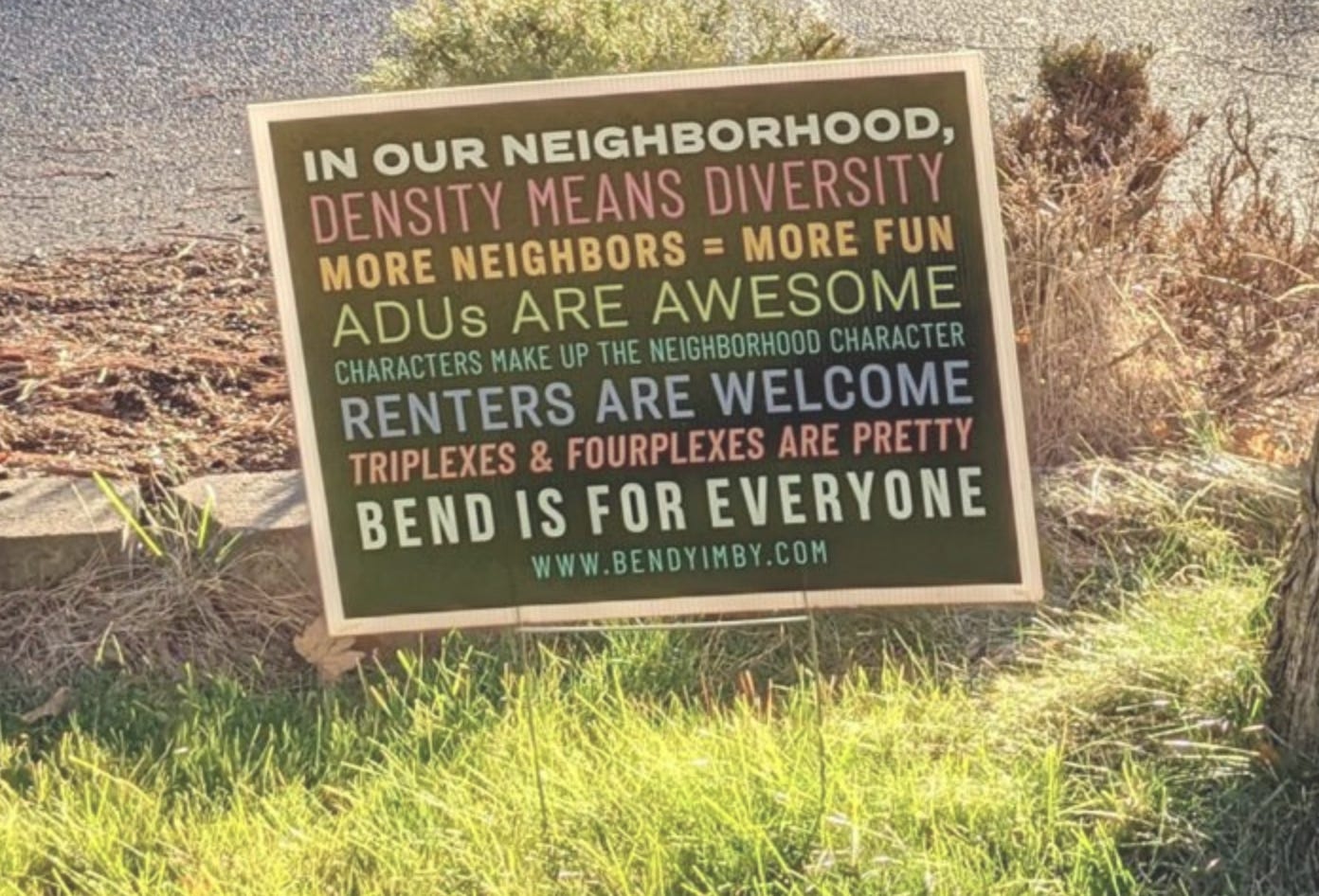A look back at last year's City Council Goals
As the newly elected Mayor of Bend and her City Council discuss their goals for the next two years, The Deschutes Chronicle takes a look back at last year's objectives.
Last year, Bend’s goals and agenda were clear- housing, homelessness, equity, and safe routes for walkers and bikers were amongst the City’s many objectives. It's highly likely that this year's goals will be similar and build on past accomplishments.
Accessible and Transparent Local Government
One issue, which shows the city’s growing liberal leanings, was having a more accessible government. The hope was that by reducing barriers and creating more awareness of how one can participate in local government and civic engagement, more communities are heard.
This is especially important for creating equity and ensuring voices from the BIPOC and LGTBQ+ communities are listened to and taken seriously. Bend, now the 6th largest city in Oregon, is over 91% white and isn’t known as being particularly welcoming to the LGBTQ+ community - something the City Council has witnessed firsthand.
Just last year, Bend's first gay and person of color on the city council, Rita Schnelkelberg, resigned citing overwhelming racism and transphobia from the public. Former Councilmembers Rita Schnekleberg and Melanie Kebler were both overwhelmingly elected in 2020 and viewed as allies on council.
Then Councilmembers Rita Schnekleberg and Melanie Kebler Credit: OPB
Mayor Kebler is well known for being active and engaged on social media - for years as a City Councilor she posted about meetings and issues affecting the city - a practice she continues today as Mayor. She hopes this will encourage younger people to engage in local government.
The City also rolled out a new dashboard which outlines the City’s goals, and its action items and progress on them.
Tackling Climate Change from a Local Level
A big goal of the council was to address climate change locally by creating clean transportation systems like a protected network of walking and biking paths. Councilmembers Anthony Broadman and then Councilmember Melanie Kebler are well-known cyclists, often biking to city council meetings and official events. They have wanted to hone in on routes to schools and insure anyone who wants to walk or bike, can do so safely. They are now joined on council by two more avid cyclists - Councilmembers Mike Riley and Ariel Méndez.
Over the last year there has been lots of movement on the plan for the east to west corridors of Bend. Another major success was the bike protected roundabout on Wilson and 9th.
Bend Bikes also emerged as a political force within the City, helping get one of their own, Ariel Méndez, elected to the City Council. Councilmember Méndez has been a fierce advocate for safe spaces for cyclists over the last 10 years, serving on the Board of Directors of Bend Bikes and the Bend Park & Recreation Department.
Housing and Homelessness
The housing crisis was and is no doubt the top goal for the City. Homelessness, particularly visible homelessness, has skyrocketed in recent years and affordable housing is largely non-existent. Renters in Bend struggle with limited supply of rental housing and landlords often raise rents 9.9% annually, the maximum allowed by Oregon state law.
This year landlords in Oregon will be able to raise rents by 14.6% and there is very little stopping them from doing so.
Over the last year, Bend has made huge strides towards their housing goals. The City amended the City’s Shelter Code - which allows for the construction of homeless shelters in most parts of the City, housing supply has increased, and Bend Central District, an initiative to build out a dense, mixed-use community that will help connect the east and westside of Bend, has taken off.
Some of the council's more tangible housing goals include building temporary housing for up to 500 houseless individuals, and 1,000 units of price-restricted or below-market-rate (BMR) housing.
A paramount goal of addressing the housing crisis is to help those without a home at all and largely sleep outside or, if available, a shelter bed. At last count, there were over 1,100 houseless people in Deschutes County and with only 310 shelter beds, the City hopes adding another 500 in Bend will help fill the transitional housing need for these individuals.
The homeless in the area are largely served by a wide swath of nonprofit organizations and volunteers who receive little outside support.
Something to keep an eye on is the Coordinated Houseless Response Office. In partnership with Deschutes County, the City of Bend created the Office after a task force found one of the biggest issues relating to homelessness was no coordinated, regional approach from the government. The head of the Office’s governing Board of Directors is newly reelected County Commissioner, Patty A’dair, an extreme far-right Republican.
Hope in the Horizon
Though the affordability issues seem insurmountable, local housing groups are optimistic, especially with the newly elected Mayor. BendYIMBY, who has been at the forefront of the growing housing movement endorsed Melanie Kebler during her mayoral campaign and helped coalesce her base.
“She has a great grasp of high-level goals, policy details, and is adept at working with other people to achieve them.” said David Welton, BendYIMBY’s founder.
Bend YIMBY’s Calling Card Credit: BendYIMBY.com
Though his group has seen huge accomplishments from the City, he doesn’t want them to take their foot off the gas, “We have really high expectations and look forward to seeing what she'll be able to accomplish in terms of making Bend a place people from all walks of life can call home.”







Bend is a beautiful place which seems to have it all, but really disappointing and disturbing to think that just last year, Bend's first gay and person of color on the city council, Rita Schnelkelberg, resigned citing overwhelming racism and transphobia from the public. Hoping more awareness, like this article, will help change attitudes.